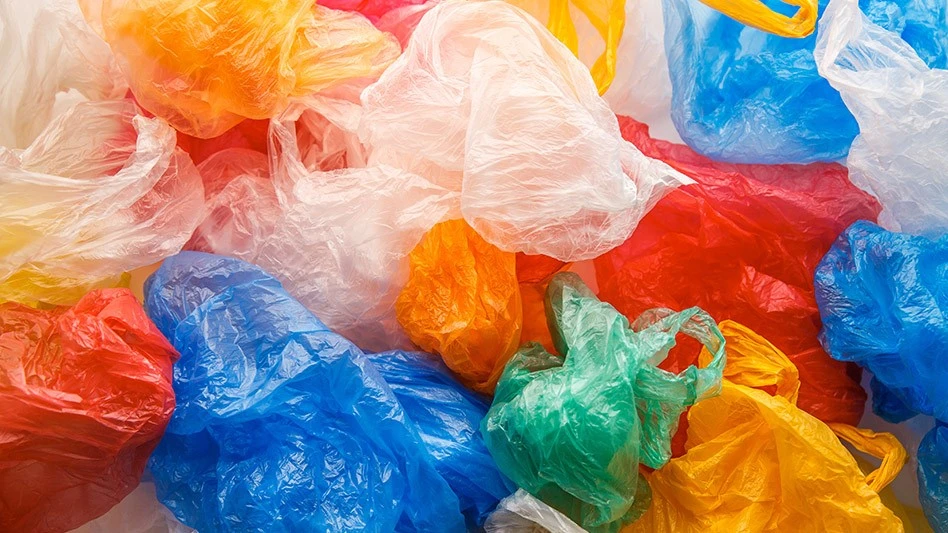
© mykolastock - stock.adobe.com
Canada’s Environment Ministry has released regulations to ban single-use plastics in the country. Canada’s Minister of Environment and Climate Change Steven Guilbeault and Minister of Health Jean-Yves Duclos published regulations that prohibit single-use plastics, including checkout bags, cutlery, foodservice ware made from or containing plastics that are hard to recycle, ring carriers, stir sticks and straws (with some exceptions).
According to a news release from Canada’s Environment Ministry, the ban on the manufacture and import of these single-use plastics will come into effect in December. The government will allow businesses time to transition and deplete their existing stock of these single-use plastic products through December 2023. The ruling also prohibits the export of plastics in those six categories by the end of 2025.
Canada’s Environment Ministry says it expects this ban to result in the estimated elimination of more than 1.3 million metric tons of hard-to-recycle plastics and more than 22,000 metric tons of plastic pollution.
“We promised Canadians we would deliver a ban on single-use plastics. Today, that’s exactly what we’ve done,” Guilbeault says. “By the end of the year, you won’t be able to manufacture or import these harmful plastics. After that, businesses will begin offering the sustainable solutions Canadians want, whether that’s paper straws or reusable bags. With these new regulations, we’re taking a historic leap forward in reducing plastic pollution and keeping our communities and the places we love clean.”
Some industry associations have expressed concern over this ruling. The Plastics Industry Association (Plastics), Washington, states that it is disappointed in the ban.
“The disregard for manufacturing jobs on both sides of the border is alarming,” says Matt Seaholm, president and CEO of Plastics. “The lack of a comprehensive economic analysis in imposing such sweeping regulations is really frustrating. There will be plastics companies that have to cut jobs or outright close facilities because of this action.
“Our members never want to see one of their products end up where it doesn’t belong. But while banning a product will certainly make it go away, replacing it with an alternative that is likely to have a bigger impact on the environment is wholly counterproductive.”
Seaholm adds that the regulations ignore opportunities for recycling single-use plastics. “Banning these products will increase costs to businesses and consumers in the U.S. and Canada, while doing nothing to significantly reduce litter or waste.”
The Chemistry Industry Association of Canada (CIAC), Ottawa, Ontario, also expressed disappointment in the ban. CIAC states that, “bans of some single-use plastic items will not solve the overall problem of plastics pollution and the management of postconsumer plastics.”
“We are disappointed that safe, inert plastic materials that play such an important role in Canadians’ lives are being banned when innovative technologies like advanced recycling are available to manage them effectively,” says Elena Mantagaris, vice president of the CIAC Plastics Division. “Rather than bans, we need to invest in recycling infrastructure and innovation, including infrastructure to manage compostables, to harness the $8 billion value of plastics that are currently sent to landfill and recirculate them in the economy.”
CIAC reports that it plans to work with Canada’s federal government to understand the scope of impacts the ban will have on businesses.
Latest from Recycling Today
- ReElement, Posco partner to develop rare earth, magnet supply chain
- Comau to take part in EU’s Reinforce project
- Sustainable packaging: How do we get there?
- ReMA accepts Lifetime Achievement nominations
- ExxonMobil will add to chemical recycling capacity
- ESAB unveils new cutting torch models
- Celsa UK assets sold to Czech investment fund
- EPA releases ‘National Strategy to Prevent Plastic Pollution’





